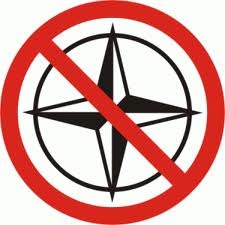In a response to J.L. Granastein’s recent article on NATO’s role in today’s security landscape, Aaron Willschick argues that Granastein’s argument is compelling yet flawed and that NATO can still serve an important role going forward.
Last month, Canadian newspaper The National Post published an article by J.L. Granatstein making the case that perhaps NATO is no longer necessary as a security alliance. He suggests that perhaps NATO should have disbanded at the end of the Cold War due to the fact that its goal of disarming the Soviet Union was accomplished. This left NATO’s role vague which has contributed to its ineffectiveness in the Balkans conflict, the Afghan War and the more recent situation in Libya. According to Granatstein, the fact that many members did not participate in Libya because of a lack of military capabilities is a strong affirmation of NATO’s ineffectiveness. Matters have since “worsened” due to the economic crisis creating defence spending cutbacks along with Alliance members pulling their troops out of Afghanistan on their own timetables. Granatstein concludes by saying that NATO members are rich, industrialized states that can readily handle their own defence and Canada should reflect on its own place in NATO and whether it needs to be a part of the Alliance anymore.
Granatstein offers an interesting and compelling yet flawed look at the role of NATO in today’s security landscape. Primarily, he fails to properly account for the reasons why NATO became involved in the Balkans, Afghanistan and Libya conflicts in the first place. NATO did not become involved in such disputes simply for the sake of adventure or to seek out a new role for itself. NATO was drawn into the Balkans situation due to the fact that the problem was occurring on the borders of NATO countries within Europe. With such a close proximity to such violent human rights violations, it was impossible for the Alliance not to become drawn in. The war in Afghanistan was precipitated by Al-Qaeda starting a war in the heart of the most prominent NATO country with the 9/11 terrorist attacks. This forced NATO to respond, whether it wanted to or not. Whether these conflicts can be considered NATO “successes” is beside the point. Granatstein does not properly take account of the complicated circumstances surrounding NATO’s involvement in them.
The world is not simply North America and Europe with a good security shield in between as Granatstein implies. There are many other security concerns all over the world that NATO has become increasingly involved in since the end of the Cold War. What about NATO’s close involvement in combating maritime piracy and kidnappings which involve North Americans and drive up the price of global trading? Or what about its role as an institutional educator in emerging countries such as Afghanistan, Armenia and Kazakhstan as part of the Defence Education and Enhancement Program? These important aspects of NATO’s current role cannot be overlooked even if they do not always receive the public attention that they may deserve.
NATO is a security alliance that was started for a specific purpose of ensuring the security of its members and decreasing the global influence of the Soviet Union. Just because it is no longer needed for the same purposes does not mean that it should go away. There is no wrong in keeping a loose alliance together than can be activated as necessary as it was in Libya. It is difficult to predict the security concerns of the future. Already having a formal alliance intact could end up being vital depending on issues that may arise in the future. Furthermore, Granatstein does not make mention of the politically stabilizing role that NATO has begun to assume over the last two decades. Many of the former Communist states that are now members have framed NATO membership as one of the primary goals of their democratic transitions. To accomplish this goal, prospective members must undergo full-scale institutional changes, which have promoted democratic and regional stability. NATO has become a gateway of sorts to the West and the European Union for Central and Eastern Europe. If membership in NATO is capable of encouraging democratic reforms and creating regional stability then why disband it?
Another flawed suggestion of Granastein’s argument is that like Canada, most NATO members are rich, industrialized states that can “readily handle the defence of their own territories with or without Canadian- and American- backing.” He goes on to say that “to pretend that Europe cannot defend itself with its own resources is to deny reality.” While many of NATO’s members are wealthy and powerful countries, Granastein fails to recognize that with the recent enlargements, NATO now includes many lesser developed and emerging democracies. The 1999, 2004 and 2009 enlargements all included states that were either members of the Warsaw Pact or Yugoslavia. Many of these countries are still developing and are far from being rich or industrialized to the same level as Western Europe or North America. To suggest that Albania or Croatia could defend itself from a foreign threat is rather presumptuous. These countries rely on NATO to ensure their security and there is no guarantee that the wealthier European countries would come to their defence as strongly as NATO would.
It may in fact be useful for Canada to produce a national security strategy and analyze the country’s foreign policy requirements for the next twenty years as Granastein suggests. However, this does not mean that NATO cannot be a part of that strategy. It does little harm for Canada to remain in the Alliance, especially since it does not brunt a huge share of the costs of NATO defence spending as the United States does. It also reaffirms Canada’s relationship with its major Western allies, relationships that extend back several decades in the past now. Even if all it does it maintain the status quo and continue to promote regional stability then NATO can be a useful tool as we head further into the 21st century.




